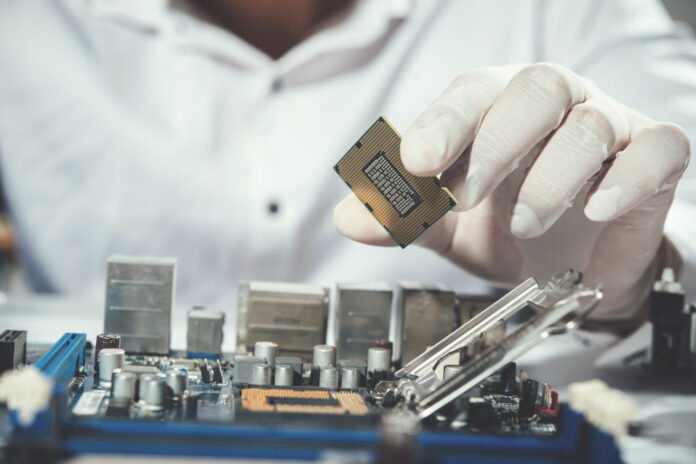Printed Circuit Board Assembly (PCBA) manufacturers play a central role in driving innovation in the modern electronics industry. As the world moves towards increasingly sophisticated electronic devices, the demands on PCBA manufacturers have grown exponentially. They are no longer just producing basic boards but are now key players in innovation, enabling the creation of more compact, efficient, and advanced devices. This article explores how PCBA manufacturers are fostering innovation in modern electronics, from miniaturization to sustainability and beyond.
Miniaturization and High-Density Interconnects
One of the primary ways PCBA manufacturers contribute to innovation is through miniaturization. Today’s electronic devices—from smartphones to wearables and IoT sensors—demand compact designs with high functionality. PCBA manufacturers meet these demands by producing high-density interconnect (HDI) boards. HDI technology allows for more connections per square inch, supporting more complex and powerful devices within smaller, thinner profiles. By utilizing advanced fabrication techniques, manufacturers can embed components, such as resistors and capacitors, directly onto the board, freeing up space for additional components and enabling powerful yet compact devices.
Advancements in Materials and Components
Another area where PCBA manufacturers drive innovation is in material selection and component sourcing. Modern electronics rely on materials that offer better thermal conductivity, durability, and signal integrity. PCBA manufacturers have started using materials like ceramic, aluminum, and certain types of composites that enhance heat dissipation and improve the device’s overall efficiency and lifespan. Additionally, there has been a shift towards low-power components, which help reduce power consumption and contribute to the development of energy-efficient devices.
The availability of increasingly sophisticated components—such as smaller microcontrollers, more efficient power management ICs, and high-performance sensors—also enhances product performance. PCBA manufacturers work closely with suppliers to source and incorporate these innovative components, enabling devices that can perform complex tasks while consuming less energy and space.
Automation and Industry 4.0 Integration
Automation and Industry 4.0 technologies are transforming the PCBA industry. Many manufacturers have embraced robotic assembly, AI-driven quality control, and machine learning to increase production speed and precision. By automating repetitive tasks and using AI to identify defects in real-time, PCBA manufacturers are improving the quality and reliability of their products.
Industry 4.0 initiatives like the Internet of Things (IoT) in manufacturing also play a significant role. IoT-enabled equipment provides real-time data on production lines, helping manufacturers optimize their processes, reduce waste, and lower costs. This integration of automation and smart technologies allows PCBA manufacturers to produce highly complex boards efficiently, further advancing the capabilities of modern electronics.
Customization and Prototyping Capabilities
Today’s technology landscape is marked by rapid prototyping and customization. PCBA manufacturers have responded by offering flexible prototyping services that allow companies to test designs quickly and at lower costs. Advanced tools, like 3D printing and software-driven design platforms, allow PCBA manufacturers to provide custom solutions tailored to specific requirements.
Through faster prototyping and the ability to scale production based on demand, manufacturers are empowering startups and established companies alike to bring products to market more swiftly. This flexibility is especially crucial in sectors like medical devices, aerospace, and automotive, where the ability to customize and test different configurations can lead to significant advancements in product design and performance.
Sustainability Initiatives
As environmental concerns grow, PCBA manufacturers are incorporating sustainability practices into their processes. From using recyclable materials to minimizing toxic chemicals, manufacturers are making strides in reducing their environmental footprint. Additionally, many are focusing on producing boards that consume less energy and designing for easier recycling or disposal at the end of the product’s life cycle.
Sustainable practices not only help reduce environmental impact but also meet consumer demand for greener products. By focusing on sustainable manufacturing, PCBA manufacturers are contributing to a more environmentally friendly electronics industry, which is increasingly becoming a factor in product innovation.
Collaboration and Co-Development with Tech Companies
Finally, PCBA manufacturers are increasingly collaborating with tech companies in the design and development stages. This close partnership allows manufacturers to provide valuable insights on manufacturability, cost optimization, and component selection early in the process. By working closely with tech firms, PCBA manufacturers help ensure that innovative designs can be produced efficiently and cost-effectively.
Such collaborations lead to a more streamlined development process, reducing time-to-market for new devices. This close partnership between PCBA manufacturers and tech companies is crucial in industries that require rapid innovation, such as consumer electronics, healthcare technology, and renewable energy.
Also Read : The top marketing tips from the iGaming industry
Conclusion
PCBA manufacturers are more than just suppliers; they are innovation partners in modern electronics. By focusing on miniaturization, adopting advanced materials, integrating Industry 4.0 technologies, offering customization options, promoting sustainability, and collaborating closely with tech companies, PCBA manufacturers are helping shape the future of electronics. As consumer expectations continue to rise and technology continues to evolve, the role of PCBA manufacturers in fostering innovation will only become more vital, driving forward the capabilities of the electronic devices we rely on every day.

